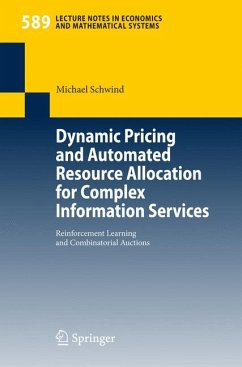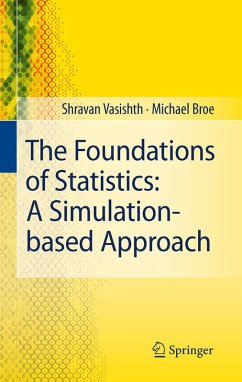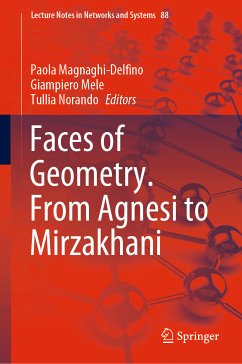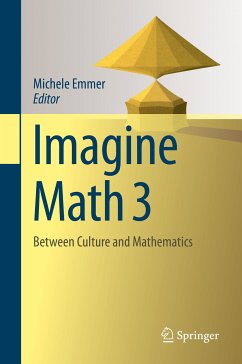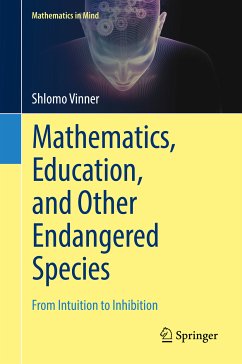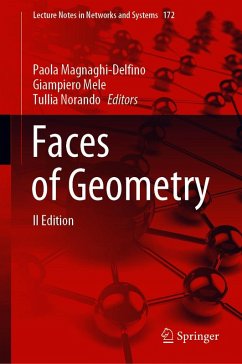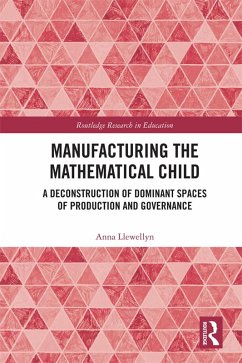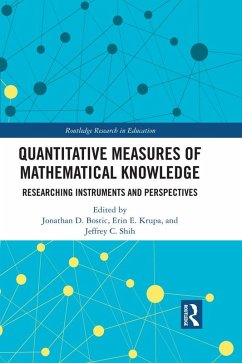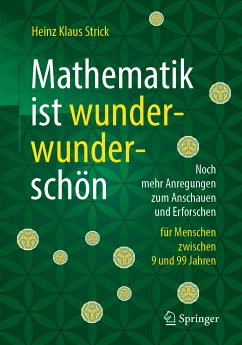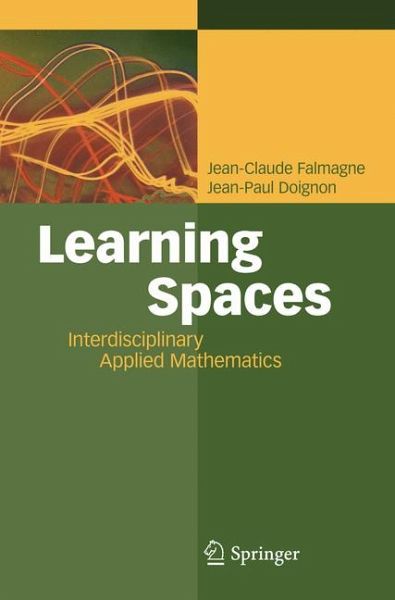
Learning Spaces (eBook, PDF)
Interdisciplinary Applied Mathematics
Versandkostenfrei!
Sofort per Download lieferbar
128,95 €
inkl. MwSt.
Weitere Ausgaben:

PAYBACK Punkte
64 °P sammeln!
Learning spaces offer a rigorous mathematical foundation for practical systems of educational technology. Learning spaces generalize partially ordered sets and are special cases of knowledge spaces. The various structures are investigated from the standpoints of combinatorial properties and stochastic processes.Leaning spaces have become the essential structures to be used in assessing students' competence of various topics. A practical example is offered by ALEKS, a Web-based, artificially intelligent assessment and learning system in mathematics and other scholarly fields. At the heart of AL...
Learning spaces offer a rigorous mathematical foundation for practical systems of educational technology. Learning spaces generalize partially ordered sets and are special cases of knowledge spaces. The various structures are investigated from the standpoints of combinatorial properties and stochastic processes.
Leaning spaces have become the essential structures to be used in assessing students' competence of various topics. A practical example is offered by ALEKS, a Web-based, artificially intelligent assessment and learning system in mathematics and other scholarly fields. At the heart of ALEKS is an artificial intelligence engine that assesses each student individually and continously.
The book is of interest to mathematically oriented readers in education, computer science, engineering, and combinatorics at research and graduate levels. Numerous examples and exercises are included, together with an extensive bibliography.
Leaning spaces have become the essential structures to be used in assessing students' competence of various topics. A practical example is offered by ALEKS, a Web-based, artificially intelligent assessment and learning system in mathematics and other scholarly fields. At the heart of ALEKS is an artificial intelligence engine that assesses each student individually and continously.
The book is of interest to mathematically oriented readers in education, computer science, engineering, and combinatorics at research and graduate levels. Numerous examples and exercises are included, together with an extensive bibliography.
Dieser Download kann aus rechtlichen Gründen nur mit Rechnungsadresse in A, B, BG, CY, CZ, D, DK, EW, E, FIN, F, GR, HR, H, IRL, I, LT, L, LR, M, NL, PL, P, R, S, SLO, SK ausgeliefert werden.




